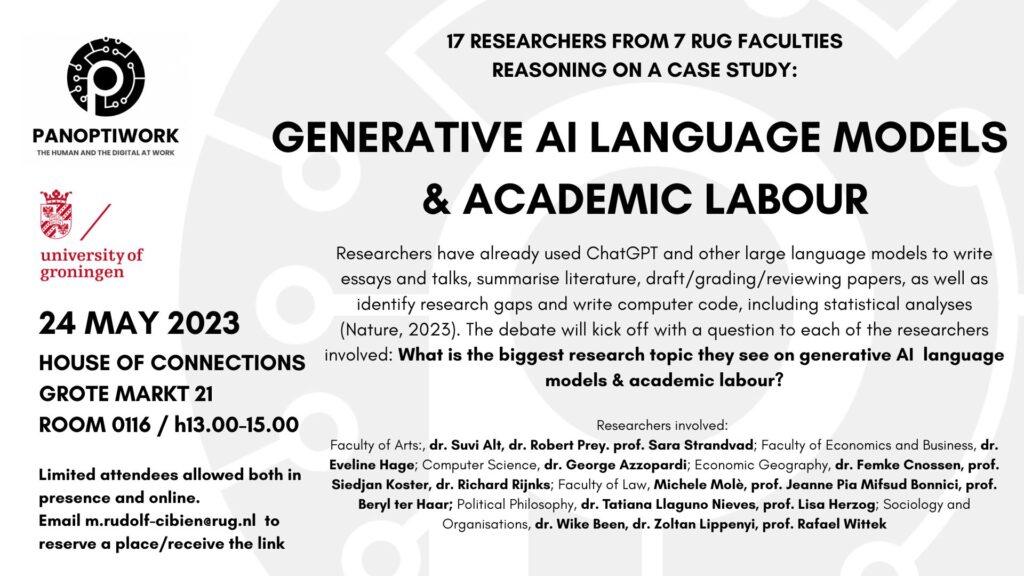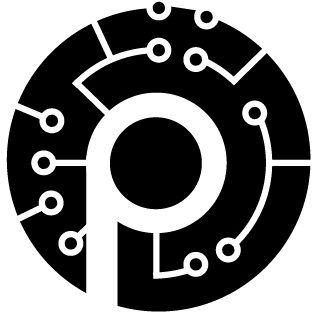
Generative AI language models and academic labour: a case study
On May 24, 2023 researchers involved in the panoptiwork project will meet at the brand new House of Connections (Grote Markt 21, Groningen) to discuss in a live setting a case study. The intention is to bring our varied research backgrounds to focus on a concrete and topical case.
We have taken as reference an article published a few weeks ago in Nature, which offers a general discussion of the impact of so-called LLM (Large Language Models) or Generative AI on education. We intend to provide an insight into how this (perhaps too) assiduously debated technology has on a particular job which directly involves all of us: academic work.
“Since a chatbot called ChatGPT was released late last year, it has become apparent that this type of artificial intelligence (AI) technology will have huge implications on the way in which researchers work. ChatGPT is a large language model (LLM), a machine-learning system that autonomously learns from data and can produce sophisticated and seemingly intelligent writing after training on a massive data set of text. It is the latest in a series of such models released by OpenAI, an AI company in San Francisco, California, and by other firms. ChatGPT has caused excitement and controversy because it is one of the first models that can convincingly converse with its users in English and other languages on a wide range of topics. It is free, easy to use and continues to learn. This technology has far-reaching consequences for science and society. Researchers and others have already used ChatGPT and other large language models to write essays and talks, summarize literature, draft and improve papers, as well as identify research gaps and write computer code, including statistical analyses. Soon this technology will evolve to the point that it can design experiments, write and complete manuscripts, conduct peer review and support editorial decisions to accept or reject manuscripts.” (van Dis et al., 2023, p.224, emphasis added).

The floor will be open to a collective brainstorming, with the aim to identify common and interesting questions that engage with our focus on work and digitalisation.
Finally, we’d like to suggest a few resource collections from the University of Groningen, Radboud University and the OECD:
